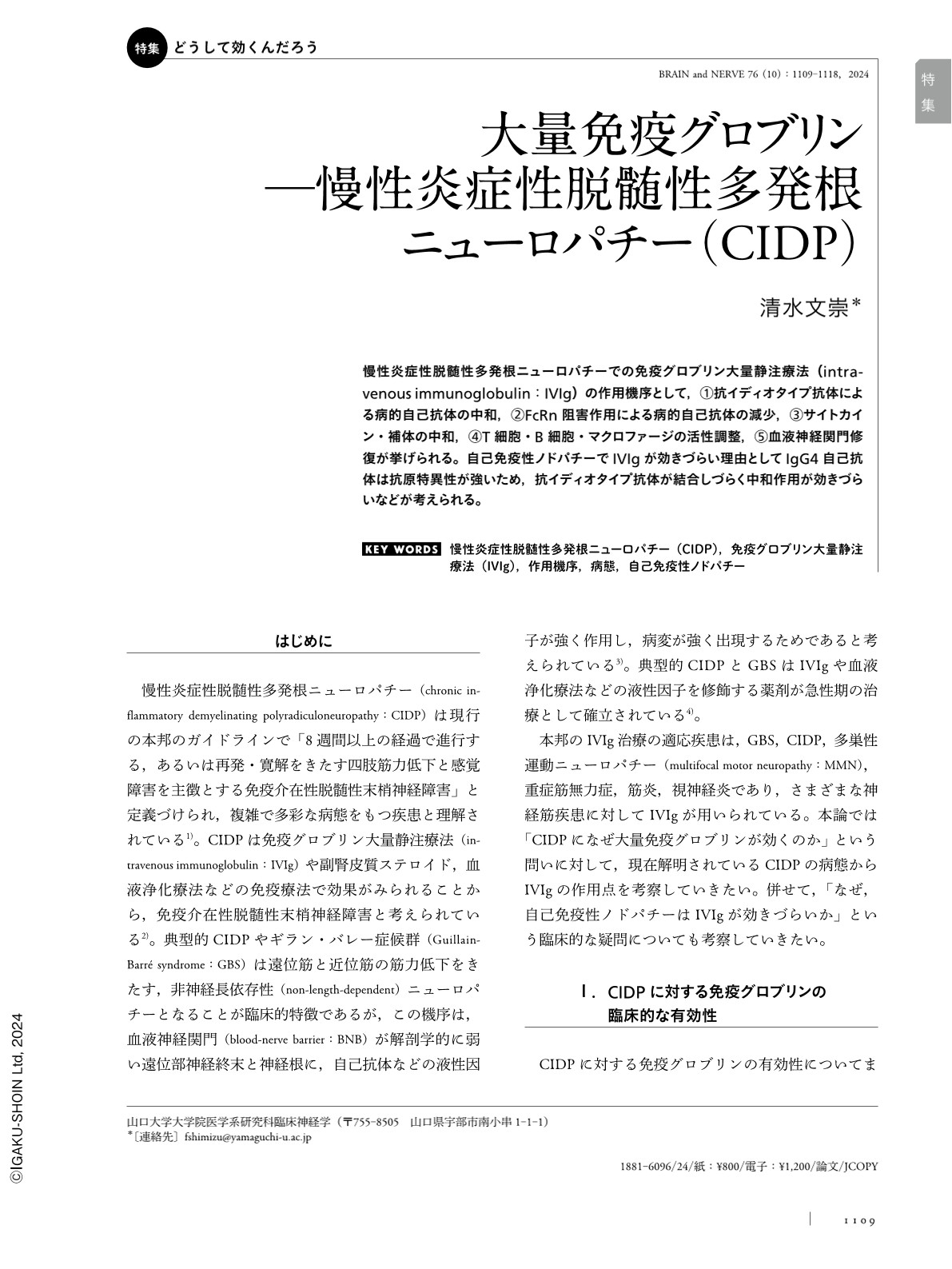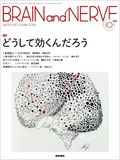Japanese
English
- 有料閲覧
- Abstract 文献概要
- 1ページ目 Look Inside
- 参考文献 Reference
慢性炎症性脱髄性多発根ニューロパチーでの免疫グロブリン大量静注療法(intravenous immunoglobulin:IVIg)の作用機序として,①抗イディオタイプ抗体による病的自己抗体の中和,②FcRn阻害作用による病的自己抗体の減少,③サイトカイン・補体の中和,④T細胞・B細胞・マクロファージの活性調整,⑤血液神経関門修復が挙げられる。自己免疫性ノドパチーでIVIgが効きづらい理由としてIgG4自己抗体は抗原特異性が強いため,抗イディオタイプ抗体が結合しづらく中和作用が効きづらいなどが考えられる。
Abstract
Considering its proven clinical usefulness and supportive evidence, intravenous immunoglobulin (IVIg) is used as first-line therapy for chronic inflammatory demyelinating polyneuropathy (CIDP) during the acute and chronic stages. However, the pathomechanism underlying IVIg administration for CIDP remains unclear. Autoantibodies, complement, inflammatory cytokines, chemokines, T cells, B cells, macrophages, and the blood-nerve barrier contribute to the onset and progress of CIDP. The mechanisms underlying the actions of IVIg in CIDP include the following: (1)neutralization of pathological autoantibodies by anti-idiotype antibodies, (2)inhibition of the neonatal Fc receptor (FcRn) with a consequent decrease in pathological autoantibodies, (3)neutralization of cytokines, chemokines, and complement, (4)activity modulation of T cells, B cells, and macrophages, and (5) recovery of blood-nerve barrier function. Compared with the management of typical CIDP, IVIg therapy is less effective for management of autoimmune nodopathy associated with anti-neurofascin-155 or contactin-1 IgG4 antibodies because (1)anti-idiotype antibodies associated with IVIg cannot effectively neutralize IgG4 owing to the strong antigen specificity of IgG4 autoantibodies, and (2)complement, T cells, and macrophages play an insignificant role in the pathomechanism of autoimmune nodopathy. Further understanding of the mechanisms underlying IVIg action and effectiveness of molecular targeted therapy, such as use of FcRn or complement inhibitors and the CD20 monoclonal antibody, is warranted to develop novel therapeutic strategies against CIDP.

Copyright © 2024, Igaku-Shoin Ltd. All rights reserved.


